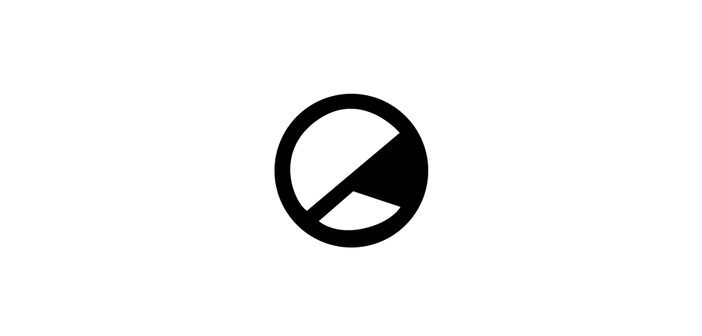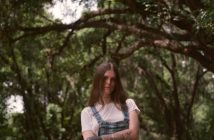Vampire Weekend return with a colourful collection of songs that stretch their sound even further than before.
-
8
Since their last album Modern Vampires in the City in 2013, the once-Brooklyn-quartet Vampire Weekend have now changed to three with the departure of multi-instrumentalist/co-songwriter Rostam Batmanglij in 2016 (with the exception of him as co-producer in two songs here), and band leader Ezra Koenig has dipped his toes into anime with Neo Yokio as well as hosting his own radio show Time Crisis on Apple Music’s Beats 1. So it’s not surprising that it’s taken six years for one of this century’s most creative music outlets to finally return with their fourth studio album: Father of the Bride. This the group’s longest record to date, containing 18 songs and lasting just under an hour in total, just to prove they haven’t wasted the time since Modern Vampires. With that being said, the teaser tracks for this new release have ranged from some Vampire Weekend’s best (‘Harmony Hall’, ‘This Life’) to mediocre (‘Big Blue’, ‘2021’), and given that each album has seen progression throughout, it’s no wonder that the curiosity and trepidation has slowly spread amongst listeners. However, with FOTB, not only have Koenig & co. created a colourful and vibrant collection of tracks, but they have somehow pushed their sound even further than before whilst experimenting with fresh ideas and instrumentation.
The opening two tracks are the album’s tone-setter. ‘Hold You Now’ is a beautiful lullaby-like opening song about making the most of an unlovable marriage (“I can’t carry you forever but I can hold you now”), which also is the first of three duets featuring Danielle Haim from HAIM. This is followed by lead single ‘Harmony Hall’, an absolute euphoric earworm full of upbeat percussion, baroque style piano, and some wonderful vocals by Koenig that links with the opener about conflicts within marriage. This theme flows again into tracks like ‘Married in a Gold Rush’ and ‘This Life’, both tracks which tie-in with the album’s title neatly. Although on first listen this might not seem apparent straight away, it’s for good reason: they’re just incredibly memorable pop songs.
For most parts, the songwriting and production on display here are wickedly sharp and full of such energy, it feels like its been bottled for so long until now where it can be let loose in huge bursts of joyfulness. ‘This Life’ is one of those bursts as it has remnants of Paul Simon’s ‘Graceland’, but with a melody that is so infectious you’ll be singing and dancing along before the song has even finished. ‘Sympathy’ is another of these sugar rushes that has a similar frenzy to ‘Cousins’ from Contra, but with some juicy flamenco-inspired guitar licks and splashes of rave that gives some grandiose weight to it. It’s chaotic at first, but each repeat listen provides a sense of control that holds it together remarkably well and its another example where Koenig is clearly pushing the band’s sound into genres they haven’t tried before and doing so with impressive creativity and confidence.
On the other hand, the album does have plenty of quieter moments to contrast with the upbeat ones very nicely. The soul-baring ‘Unbearably White’ seems simple on the surface, but with some beautiful complex lyrics that will keep fans searching for answers. As well as this, the final track ‘Jerusalem, New York, Berlin’ is a blissful tune with a low-fi synth beat, piano, and lyrics that reference the Balfour Declaration (I obviously didn’t have to google that) as well as Jewish identity, and which wrap-up some of the album’s themes in quite a thought-provoking manner. But while most of these moments are fully fledged, some of FOTB’s quieter sections seem half-baked and scrappy, and even though this seems intentional from the band, the execution doesn’t come off well. ‘Big Blue’ is an awkward listen as it starts from a low-key ballad with synth pads before erupting into a loud gospel-like chorus and then suddenly ending as the song begins to take flight. The same can be mentioned for ‘2021’, and although I admire the song’s simplicity built around a sample from ‘Talking’ by Japanese composer Haruomi Hosono, it leans towards Beatles-esque pastiche with twangy guitar lines meshed with 8-bit synth that comes off in a very twee-cringe manner.
But this is the point of the double album: to show off as many ideas and concepts as an artist, and most of them here are thoroughly accomplished. Before the album’s release I thought the single ‘Sunflower’ featuring The Internet’s Steve Lacy would feel little out of place with its insanely-funky bassline. However, with the following track ‘Flower Moon’ featuring Lacy again with some more flamenco-infused riffs, its placing makes perfect sense in context with the whole album and it makes for an excellent two-part song. For some people their first listen will be, as someone described, like listening to a ‘scrapbook of brilliant ideas’ with tracks colliding into one another in a vibrant fashion but without a sense of union to link them all. However, with each repeat listen of Father of the Bride, this cohesiveness becomes apparent as thematics and lyrical meanings will slowly bubble up to the surface in a manner that is unobtrusive and extremely rewarding, and it’s without a doubt one of 2019’s most creative and exciting albums thus far.
In 2008, Vampire Weekend released their self-titled debut to reactions that revolved around ‘over-privileged white college students’ who created irritating genre mash ups of African and Indie-punk; 11 years later, who’s laughing now?
Father of the Bride is available now via Columbia Records




